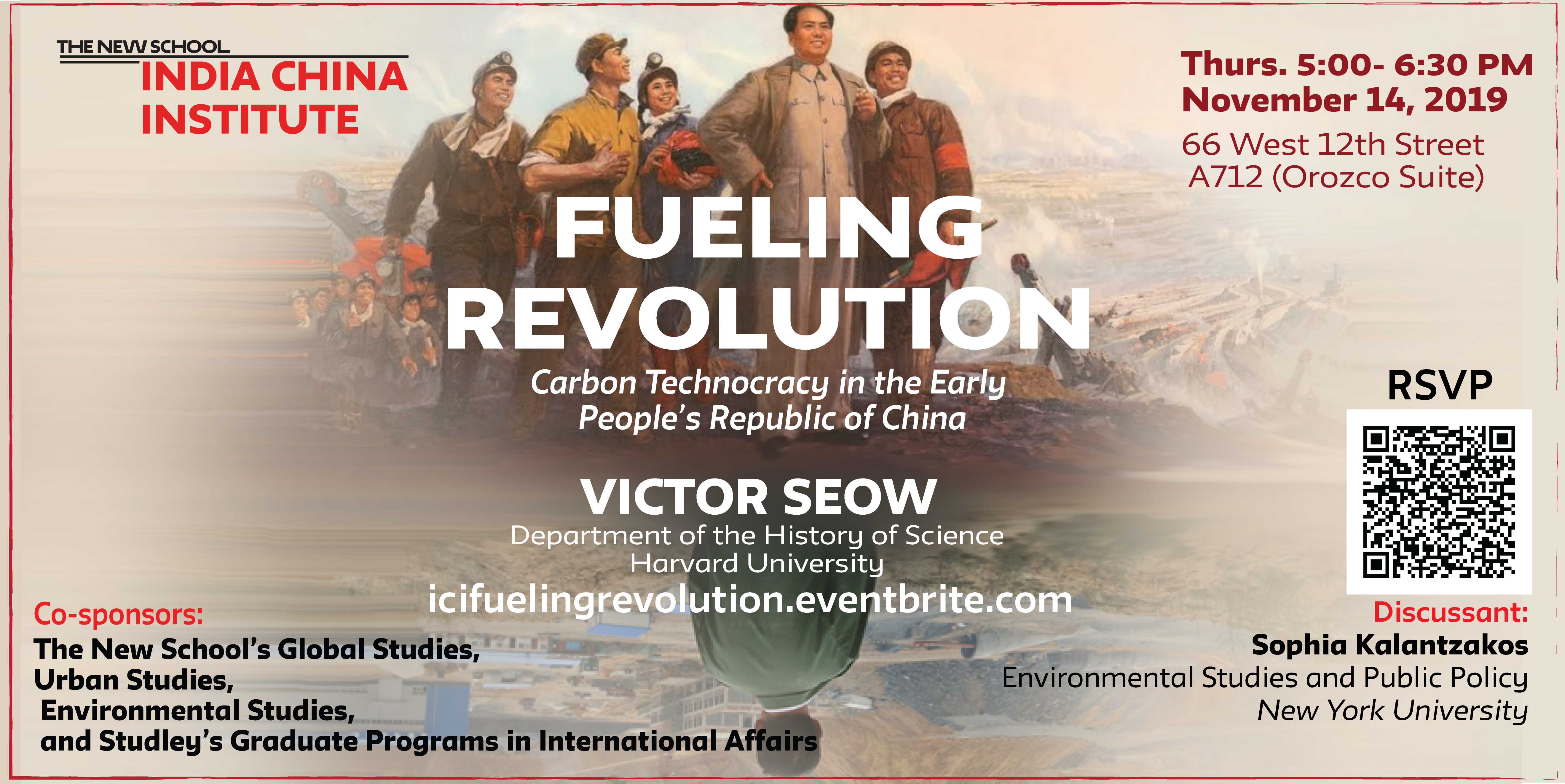
Fueling Revolution: Carbon Technocracy in the Early People’s Republic of China
November 14, 2019 , 5:00 pm – 6:30 pm


Victor Seow is a historian of technology, industry, and the environment. His research interests revolve around questions of how technological developments intersect with economic life and environmental change in the making and unmaking of industrial society. Geographically, he focuses on East Asia, which, in the modern era, witnessed monumental transformations across its vast expense and multiple environments as regimes that ranged from imperialist to socialist pursued industrial expansion through heavily technological means. His research sets out to map the contours of those transformations in the past that gave rise to outcomes with which the region still grapples in the present, from despoiled environments to divided societies. At the same time, his work situates East Asia within a global frame and seeks to show how attention to East Asian experiences may sharpen historical and contemporary understandings of technology and the environment in our modern world.
Seow is currently finishing his first book, Carbon Technocracy: Energy Regimes in Modern East Asia, which explores how coal resources and mining technologies shaped Chinese and Japanese experiences with global industrial modernity. Centered on the Fushun colliery in Manchuria, which once boasted the largest coal mining operations in Asia, this project examines how the various Chinese and Japanese regimes that had at different times owned and operated the Fushun coal mines became committed to large-scale, state-led energy extraction amidst concerns over economic growth, resource scarcity, and national autarky. Pivotal to this process was the development and deployment of technologies of extraction: from methods such as open-pit mining and shale oil distillation that enabled the extraction of carbon energy to mechanisms such as fingerprinting and calorie counting that allowed for the extraction of the human labor undergirding the entire enterprise. Grounded in a range of Chinese and Japanese sources, including engineering students’ practicum reports, workers’ oral histories, and the personal papers of mining managers, this project uncovers links between the intensification of coal extraction and the rise of technocratic governance in transwar East Asia, ultimately contributing to interdisciplinary debates about the relationship between energy and the state.
Other ongoing projects include a history of scientific management in China and an environmental history of Chinese innovation as well as two collaborative projects: one on Mr. Science in May Fourth China and beyond (with Sean Hsiang-lin Lei) and the other on technologies of production in East Asian history (with Dagmar Schäfer).
At Harvard, Seow offers or will be offering courses in the history of modern science and technology in East Asia, the history of the factory, and the history of technology and capitalism.
Born and raised in Singapore, Seow received his B.A. in History and Political Science from McGill University and his Ph.D. in History and East Asian Languages from Harvard University. Before joining the Harvard faculty in 2017, he was an Assistant Professor of History at Cornell University.
